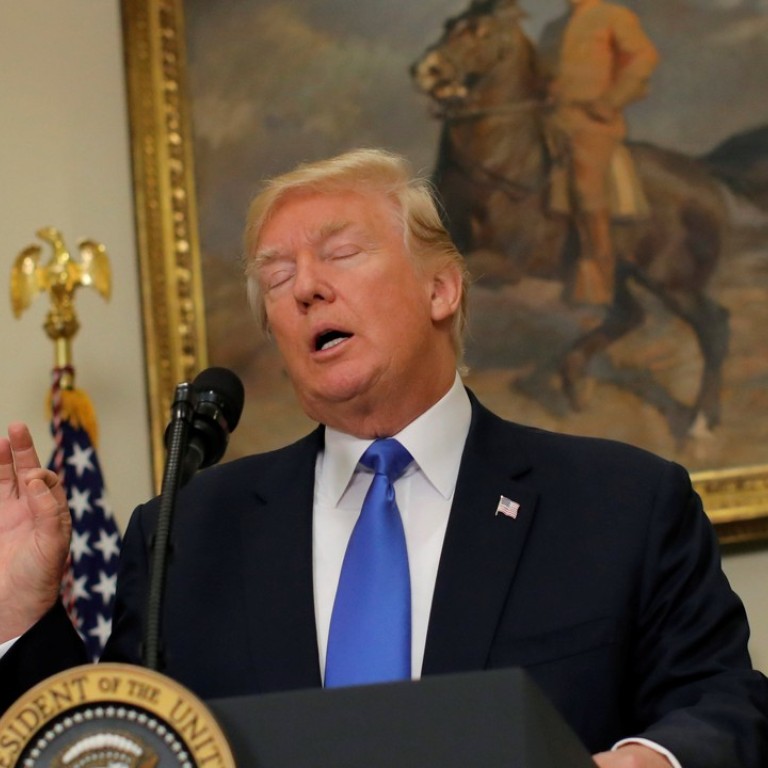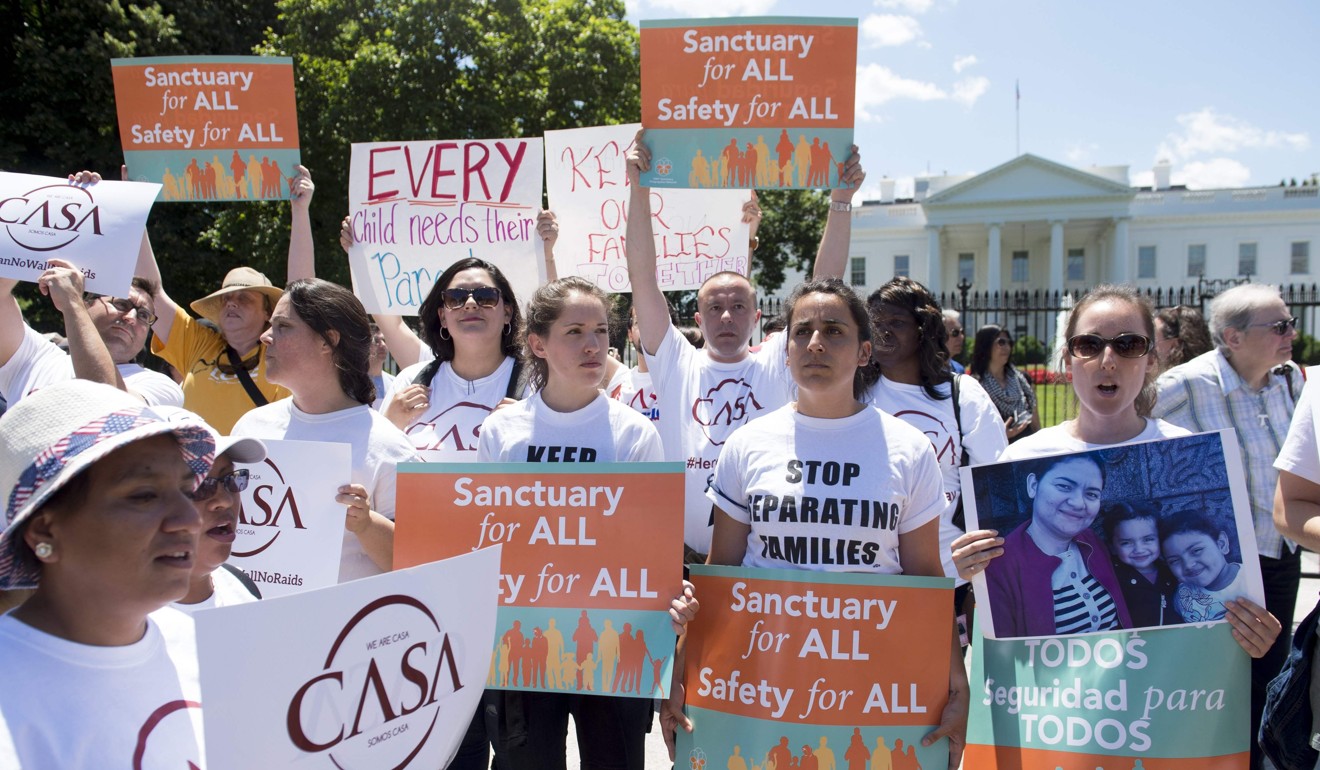
Update | Trump supports radical US immigration overhaul, slashing legal intake and giving skilled workers priority
Applicants with advanced degrees, job offers, and English-speaking skills would get preference, while those with family ties would face tougher path - but legislation faces uphill battle in Congress
US President Donald Trump on Wednesday endorsed new legislation that would reduce legal immigration to the US and evaluate visa applications based on merit, with a preference for people with higher education or job skills.
The legislation would represent a dramatic overhaul of the current US immigration system, leading to a significant decrease in the number of green cards issued to immigrants and eliminating some benefits enjoyed by prospective immigrants with family members already here. Instead, applicants with advanced degrees, particular skills, or job offers would be given preference .
The changes would represent the fulfilment of a campaign-trail pledge for the president, and are favoured by top White House aides Steve Bannon and Stephen Miller, who have often pushed Trump to embrace a more nationalist agenda. They’ve argued that while high-skilled foreign workers can help stimulate the economy, low-skilled immigrants can suppress wages and job opportunities for US-born workers, and particularly those in blue-collar jobs already under threat from global trade.
The legislation “will reduce poverty, increase wages and save taxpayers billions and billions of dollars,” Trump said in remarks at the White House, where he was flanked by Republican Senators Tom Cotton of Arkansas and David Perdue of Georgia, the bill’s sponsors.
The US should “favour applicants who can speak English, demonstrate they can financially support themselves and their families, and demonstrate skills.”

But the legislation faces a steep climb on Capitol Hill, where immigration bills have long struggled to gain momentum, even when lawmakers weren’t facing major pushes to raise the nation’s borrowing authority, fund the government, and overhaul the tax code.
The ideas offered by Cotton and Perdue have so far gotten little traction among their colleagues. Some lawmakers, including Republicans, argue that low-skilled labourers help stimulate the economy, particularly in sectors like construction and agriculture. They point to decreasing unemployment rates as evidence that on the whole, Americans are able to find the work they want.
And immigration advocacy groups say that by prioritizing high-skill workers, the extended family members of US citizens will be disadvantaged. So too will immigrants looking to escape poverty or violence.
To that end, the legislation would also cap annual refugee admissions to just 50,000 per year, less than half the rate Barack Obama set for his final year in office amid the migration crisis in the Middle East. It would also eliminate the Diversity Immigrant Visa lottery, which aims to diversify the immigrant population by opening up visas to countries with low immigration rates.
But the senators hope that with Trump’s support, their proposals can gain steam. The president’s push on immigration was one of the tent poles of his successful presidential campaign, and thought to have helped motivate white, working-class voters to propel his upset victories in Midwestern states that had voted for Barack Obama.
Trump referenced his work with Cotton and Perdue during a rally last week in Youngstown, Ohio, saying they were working toward “a merit-based system” that “protects our workers, our taxpayers, and one that protects our economy.”
“We want people that work really hard in their country and that are going to come into our country and work really, really hard,” he said. “We don’t want people that come into our country and immediately go on welfare and stay there for the rest of their lives. We’re not going to do it.”

